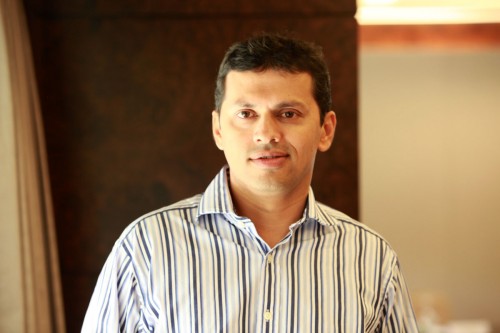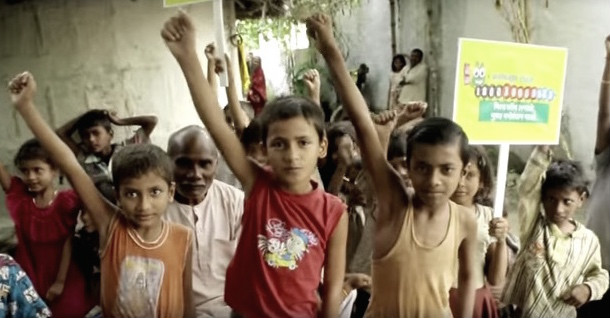Unilever’s Rahul Welde: People first rather than consumers
Rahul Welde, VP Media for Unilever Asia, Africa, Middle East, Turkey and Russia, says the number of media and technology options for consumers to engage has evolved “way beyond what people had imagined” and if brands are to remain relevant they need to make listening a priority.
In our continuing series of interviews with top industry thought leaders and innovators, we speak with Welde about Unilever’s plans for digital and social media in 2015, its focus on building brand love, the importance of responding quickly and creatively in digital, and Millennials’ thirst for ‘snackable’ content.

As we enter a new year, are you confident you have achieved what you set out to do in 2014?
WELDE: We are on a journey that is continuous. We call it a “crafting brands for life” philosophy. Within that we start by putting people first and really try to understand people in the deepest sense. We glean insights out of what motivates them and what is critical to them. Our mission is to make sure that we translate those insights to build love for our brands.
Is there anything you are particularly proud of?
WELDE: If we look back there are a number of areas where we have made a dramatic impact, most notably in the area of mobile marketing. We’ve had a number of cases across markets that leverage the power of a local insight.
For example, the mobile radio program called KKT (Kan Khajura Tesan) that we run in India taps into media dark areas providing a unique mobile radio service. In these areas, people don’t have access to television but they all have access to mobile. They don’t have access to [traditional forms of] entertainment, so we bring this to them [through KKT], whether it’s music, jokes or dialogues from Bollywood movies. We package it to provide that mobile radio service in a very interesting [locally-specific] way.
A fifth of Unilever’s entire media spend is now direct to digital. Is that enough of an investment?
WELDE: We have to do things that are fit for purpose. We are connecting with different sets of people across different sets of brands. We don’t use digital or any one platform in the same way across all the brands and the consumers. In general, it’s fair to say that digital continues to grow very fast in terms of how people use digital technologies and therefore we have to continue to leverage that.
In the past you have said speed is critical and that organisations have to move faster than ever before.
WELDE: Speed is indeed critical in the new world. This is driven by technology because access to information and information flows are much faster now. To manage this shift we are undertaking several initiatives. For example we have a command centre in our Singapore office that enables us to do real time marketing and agile management of our campaigns across countries all from one location. There are two parts to agile marketing – one being how you listen and the second part how you respond to what you’re listening to. As the digital technology platforms to evolve, speed will certainly be the new currency.
You mentioned real time marketing. Do you have a specific definition for what real time marketing means to Unilever?
WELDE: I think there many definitions for real time marketing. My definition of real time marketing is simply fast speed of response. Fast has to be in the context of days and not months or weeks, or sometimes faster depending on what the event is. It all starts by ensuring that you are listening to what is happening out there and having a ability to meaningfully respond speedily. There are different dimensions for outreach, what platforms do you use, do you use social media or use other forms, and is there a creative aspect in terms of the message and what and how do you want to bring to life. You have to be topical, you have to seize opportunities and you have to be fast.
In terms of direct sales, is the expectation for social media to lead to that? Do all roads lead to conversion?
WELDE: It is a mix of things. In the process of communication you build brand equity that eventually leads to sales, but that is not the end objective. In our philosophy, the idea of brand love is more than just conversions; our idea of putting people first is much more than looking at them as consumers. It’s a fairly strong marketing philosophy that I would say is quite beyond the conventions of just converting to sales.
Does Unilever use social media for research and development purposes?
WELDE: Social media provides great insights into what’s going on, what is topical, what is meaningful to people and what is impacting at scale. It all goes back to listening. There are lots of conversations going on and brands have to be listening to what is going on. Currently there has been an over-emphasis on what is put out and less emphasis on listening.
Much has been written about the challenges of how to market to Millennials. From your perspective, what is the best way to engage this elusive demographic?
WELDE: The key point about the young is the platforms they use. It’s quite clear that the youth use more platforms and that they use them differently from what other segments do. The second point is about the habits of consumption – these are quite distinct and relate more to snacking. Attention spans and the levels of engagement are more ‘here and now’ than deeply thought through. How you (engage Millennials) really relates to the platforms you leverage and what exactly you do through those platforms. The overall package has to be very compelling. The big difference is the snacking versus the long form. For the youth snacking is key.
If there is one thing that keeps you up at night, what is it?
WELDE: It is the excitement and the opportunity that keeps me buzzing at night. There is so much that one can do. There are so many ideas that are thrown at you whether it be concepts, projects or possibilities, and that excitement is absolutely unparalleled. Technology is a big driver of that excitement.

